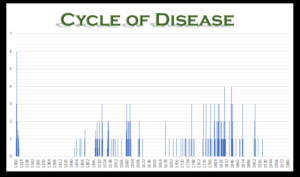The Looming Disease Cycle: Historical Patterns and Future Predictions
Understanding the Interplay of War, Migration, and Disease
At Extreme Investor Network, we pride ourselves on delving into the complexities of global economics, emphasizing the critical interplay between large-scale social phenomena such as war, migration, and disease. As we navigate through recent and historical trends, it’s important to recognize recurring patterns that can shape our future.

Recent Developments in COVID-19
A recent correspondence highlights concerns raised by noted virologist Geert Vanden Bossche, who has consistently warned about the emergence of new COVID-19 variants, particularly in highly vaccinated populations. These variants, sometimes referred to as having "razor blade throat" symptoms, could arise as a result of both viral mutations and the changing dynamics of public health responses.
This situation dovetails with trends we’ve seen consistently over history, where significant viral outbreaks have often coincided with massive migrations and socio-political upheaval.
The Deadly Historical Cycle of War and Disease
Our research indicates a disturbing correlation between warfare, migration, and disease outbreaks. Historically, wars have not only devastated populations but have also acted as catalysts for the spread of diseases. For example, during World War I, the Spanish Flu claimed more lives than the war itself, demonstrating the catastrophic impact of disease in times of conflict.

Recent conflicts, such as the Syrian Civil War, have seen a resurgence of diseases like cholera due to the breakdown of healthcare systems. The global movement of people leads to a rapid transmission of pathogens, which has profound implications for public health.
Projecting Future Trends
Our proprietary models suggest that we are possibly entering a critical phase as we approach 2029. We foresee a convergence of social instability and health crises, further exacerbated by global migration patterns. Notably, the potential for diseases to surge in the context of geopolitical conflicts is high.
This doesn’t merely reflect a singular viewpoint; historical data supports the idea that populations ravaged by wars often face overwhelming health challenges. The infamous "Great Plague of Marseille" coincided with tumultuous socio-political conditions and severely impacted European demographics.

The Sixth Wave: A Critical Understanding
According to our extensive analysis, 2032 marks a ‘sixth wave’ in the cycle of disease associated with major historical events. This phase is expected to echo previous pandemics that have reshaped societies. As we explore the implications moving forward, we must remain vigilant about potential variants of COVID and other infectious diseases.
The Implications of Ignoring History
As we dive into the socio-political arena, it is crucial to understand that our decisions today will resonate through future decades. The tragedies of the past—where disease spread rapidly through migration—are warnings we cannot afford to ignore. The continued governance of political agendas without thorough historical awareness may lead disaster upon disaster.
Conclusion
As we move forward, the insights drawn from our findings at Extreme Investor Network offer a profound understanding of the cyclical nature of economics and public health. Recognizing historical patterns concerning war, migration, and disease allows us to prepare for and potentially mitigate future crises.
Stay informed with us as we navigate these complex landscapes, providing you with the analytical depth and historical context necessary to understand the challenges ahead. Subscribe for more insights and join our quest to decode the intricacies of our ever-evolving world.

